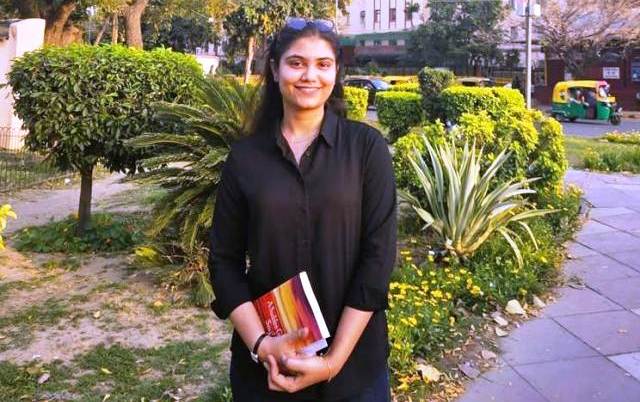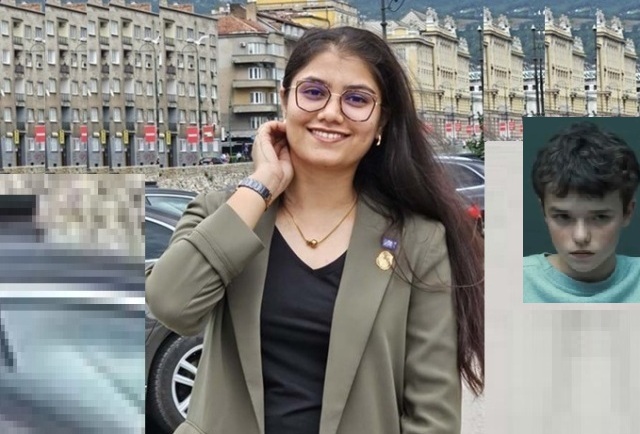Aayushi Rana, a post-grad in History from Aligarh Muslim Univsersity, says the Gen Z feel their online identity is more important than who they are in real life. Her views
Even though Adolescence, a widely seen Netflix series, is set in a UK school, the emotions it captures—feeling lost, pressured, judged, or unseen—are so familiar that they have struck a chord here in India too, especially in the cities.
Whether it’s a teenager in London, or in Delhi, the desire to fit in with a virtual society, often unknown, the anxiety of being left out of a group chat, or the pressure to look pretty, perfect, and attractive, online, feels eerily similar. The world might look different on the outside, but the struggles and dangers of growing up in the age of an obsessive social media, with all kinds of stuff floating on it relentlessly, are more or less universal.
Young people, including schoolkids, are navigating a world where their online identity can often feel more important than who they are in real life, and that’s something that crosses borders. We are living in a time where screens are no longer just tools—they are an extension of our daily lives.
The Gen Z wakes up with notifications and go to bed scrolling through social media. This constant exposure is reshaping how they think and feel. It’s not just about being online—it’s about ‘always being seen’. And that can be psychologically and emotionally exhausting.
The pressure to present a perfect version of themselves can lead to insecurity, anxiety, loneliness, and even emotional burn-out. It also makes them more vulnerable to harmful trends, cyber-bullying, and misinformation. They can be trapped by frauds pretending to share the same wavelength, and professional predators, looking for vulnerable prey. Indeed, when you are still figuring out who you are, it’s easy to get caught up in toxic cycles without even realizing it.
ALSO READ: ‘Good Parenting Does Not Require You To Be A Helicopter Mom’
Girls carry a heavier emotional burden in the digital world; they are judged more often and harshly, be their looks, outfits or behavior online. A lot of them are constantly comparing themselves to filtered images and celebrity standards, which can seriously damage their self-confidence. I have spoken to girls who avoid posting anything at all because they are scared of being trolled or shamed.

This kind of pressure doesn’t just stay online—it creeps into their everyday life, making them doubt their worth, or choose to stay silent when they should be heard. It’s heartbreaking, and it’s something we need to talk about more openly.
There is strength in India’s family structure. When it works well, it gives kids a real sense of belonging and safety. Having grandparents around or close family connections can mean there are more people to notice when something feels off, or, to simply listen when a teenager needs to vent.
But that’s not always the case, especially in urban nuclear families, and impersonal gated societies, where parents are busy, or working couples, and kids are often left to figure things out on their own. Sometimes, the emotional distance between generations makes it hard for teenagers to open up—especially when the adults don’t really understand, or try to understand, the digital world their kids are growing up in.
Banning mobiles might sound like a quick fix, in fact, it can backfire. It can only push kids to hide things or feel like they are being being punished, instead of being supported. What really helps is having open, honest conversations—without judgment. When young people feel safe to talk about what’s going on in their online lives, they are far more likely to come to you when something goes wrong.
We also need to help them build digital awareness—teaching them how to think critically about what they see online and how to protect their emotional health. And, yes, setting some healthy boundaries together, like screen-free dinners, or time to unwind without devices, can really help.
However, at the end of the day, it’s about building trust, not control. Teens need to know we are on their side. Adolescence is not just a phase—it’s a turbulent storm of ‘being and becoming’.
In a world of glowing screens and suppressed angst, our children are growing up in shadows we often fail to see. They don’t need judgments from us—they need a trusted presence. Friendship. Understanding. They need our silence so that we can listen to them; our questions have to be kind and intelligent, and our love should be unwavering.
If we can meet them where they are, with open hearts and steady hands, maybe—just maybe—we can help them find their way through the chaos and noise, the dangers and traps, towards a world where they feel safe and happy to be fully, unapologetically, themselves; what they really are — innocent, pure, eclectic hearts and minds, full of wonder, dreams and aspirations.
(The narrator is a Senior Researcher at Digitial Forensics Research Analytics Centre. She is also a Digital Forensics trainer, having conducted training sessions for journalists from across the world on misinformation, fake news, digital safety and skilled verification techniques.)
As told to Amit Sengupta
